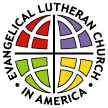Pastor John's Daily Briefing-8/11/2020
Pastor John's Daily Briefing-8/11/2020
Dear Sisters and Brothers in Christ,
Today marks the 75th anniversary of the dropping of an atomic bomb on Hiroshima. I'm a child of the Sixties and early Seventies, a time of nuclear proliferation when the financial outlay for this nuclear buildup was more than three times the entire expenditures for education and health care during that time period. The newly built elementary school I attended spent more on an elaborate bomb shelter than it did on classrooms. The times were tense and uncertain in many respects regarding the possibility and even a considerable probability of living with the threat of nuclear fallout, albeit there were several other factors contributing to the society's angst.
Notable also during this time was a decline in church participation, the first such decline since the early years following the Great Depression.Was this a time where fear came to eclipse faith? A national newsmagazine even speculated on the "death of God."
I raise this summary of a not-to-distant past in order for us today to address the concerns that we may face in the here-and-now, concerns that call attention to fear and faith, frustrations and prognostications, safety and security, relationships and resilience. Our lives, the structures and formulations of our patterns of living, have been up-ended from health scares to a brewing and brooding amount of social unrest. As much as we want and we would wish for, we are not returning to the "old' normal any time soon. That suggests a need to adjust and adapt, suggestions that often rub against the grain, and foster resistance, rebellion, resentment, revenge, reproach, and many more "re"-words that spurn division and despair.
So, what might occur if we put our Christian faith to the forefront of our discussions, deliberations and decisions regarding our present-day thought processes and actions? Will the presence of the risen Christ have bearing on how we "see" each other and the world in which we inhabit? Will the language we use posture reconciliation and hope, or will it resort to resentments and ridicule? Will we seek the guidance of the risen Christ who died for all of us to bring us to a place of unity and peace, or have we found some "comfort" in the muck of division and hate? Or, as problematic, have we taken those initial steps (doubt, disinterest, indifference) that allow us to create some distance between ourselves and God?
Where do we stand in our participation as the church? What does our prayer life reflect? Are we able to experience the nearness of the risen Jesus with us? Are we able to recognize the presence of the risen Jesus in our views of others, particularly if we "see" them from a perspective of differences? Is our Christian faith the primary manner in which we address the concerns of the day?
From the Apostle Paul's perspective, this Christian faith is both cautionary and conciliatory. First, we hear, "For all of us must appear before the judgment seat of Christ, so that each may receive recompense for what has been done in the body, whether good or evil" (2 Corinthians 5:10). But second, we are assured "For the love of Christ urges us on, because we are convinced that one has died for all; therefore all have died. And he died for all, so that those who live might no longer live for themselves, but for him who died and was raised for them" (2 Corinthians 5:14-15).
Therefore, we have hope, a hope that God shares with us in Christ. Pastor John
